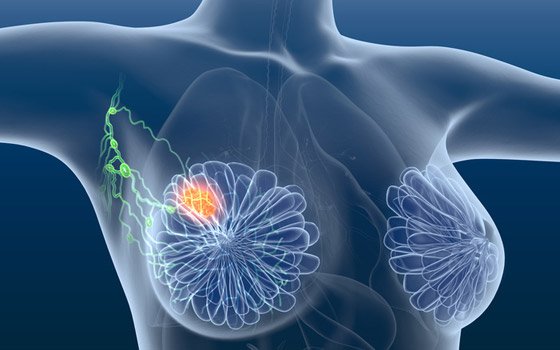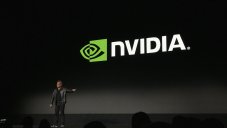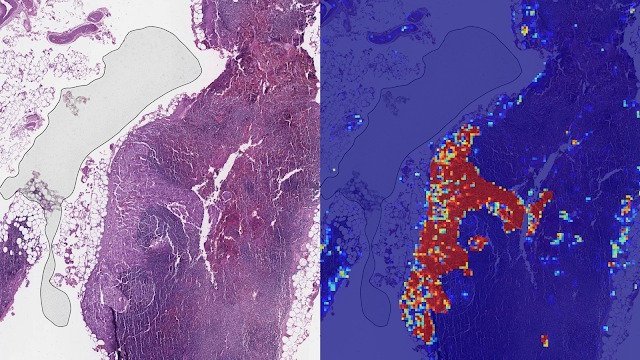Google AI Can Now Detect Breast Cancer Better Than Humans
Karamchand Rameshwar - Nov 01, 2018

Google developed an AI program that can detect late-stage breast cancel better than humans with 99 percent accurate in the test conditions.
- Google's Project Genie: Premium Subscribers Unlock Interactive AI-Generated Realms
- Google Offers Voluntary Buyouts to US Employees Amid AI Push
- Google SynthID: Everything You Need to Know About AI Content Detection
Left slide contains lymph nodes. Right slide shows LYNA is identifying the tumor region.
Google has once again shown why it is among the largest tech corporations in the world as it has developed an artificial intelligence program called Google AI that is claimed to be better than pathologists at detecting late-stage breast cancer.
The Google AI, named Lymph Node Assistant aka LYNA, was developed to recognize the characteristics of tumors by studying the scans from cancer patients. This AI can detect secondary cancer cells in the pathological slides at 99 percent accuracy while it is only 81 percent on average for pathologists under time constraints.
Secondary cancer cells can spread from original cancer and grow in different parts of the body. Therefore, finding them can be a hard task for pathologists.
LYNA was proven to be more effective when pairing with pathologists. In an LYNA’s trial, pathologists using LYNA were being able to inspect cancer scans with better accuracy in only half of the normal inspection time.
However, this AI can only be effective in detecting last-stage breast cancer which is usually pretty late for patients who have them. It also has not been applied in real situations. But the scientists said that metastasis is a common factor in most known forms of cancer. Therefore, it should not be long until someone finds out ways to adapt the systems to detect other tumors.
Google is contributing a lot to the health care AI. Google's Medical Brain claimed in June that they had managed to create an AI system that was able to forecast the mortality rate with the accuracy of 90%. Verily of Google has also made inroads with determining the risk of a person getting heart disease with retinal scans.
Anyway, hopefully Google's LYNA will be ready for practical use soon as it could boost the accuracy of cancer diagnoses and also help doctors save time to focus more on caring their patients.
Featured Stories

Mobile - Feb 16, 2026
Xiaomi Launches Affordable Tracker to Compete with Apple's AirTag

ICT News - Feb 15, 2026
X Platform Poised to Introduce In-App Crypto and Stock Trading Soon

ICT News - Feb 13, 2026
Elon Musk Pivots: SpaceX Prioritizes Lunar Metropolis Over Martian Colony

ICT News - Feb 10, 2026
Discord's Teen Safety Sham: Why This Data Leak Magnet Isn't Worth Your Trust...

ICT News - Feb 09, 2026
PS6 Rumors: Game-Changing Specs Poised to Transform Console Play

ICT News - Feb 08, 2026
Is Elon Musk on the Path to Becoming the World's First Trillionaire?

ICT News - Feb 07, 2026
NVIDIA's Gaming GPU Drought: No New Releases in 2026 as AI Takes Priority

ICT News - Feb 06, 2026
Elon Musk Clarifies: No Starlink Phone in Development at SpaceX

ICT News - Feb 03, 2026
Elon Musk's SpaceX Acquires xAI in Landmark $1.25 Trillion Merger

ICT News - Feb 02, 2026
Google's Project Genie: Premium Subscribers Unlock Interactive AI-Generated Realms
Read more

ICT News- Feb 15, 2026
X Platform Poised to Introduce In-App Crypto and Stock Trading Soon
X has been laying the groundwork for this expansion.

Mobile- Feb 16, 2026
Xiaomi Launches Affordable Tracker to Compete with Apple's AirTag
For users tired of ecosystem lock-in or high prices, the Xiaomi Tag represents a compelling, no-frills option that delivers core functionality at a fraction of the cost.

Mobile- Feb 14, 2026
Android 17 Beta 1 Now Available for Pixel Devices
While Android 17 Beta 1 doesn't introduce flashy consumer-facing changes yet, it lays the groundwork for a more robust and flexible platform.

Comments
Sort by Newest | Popular